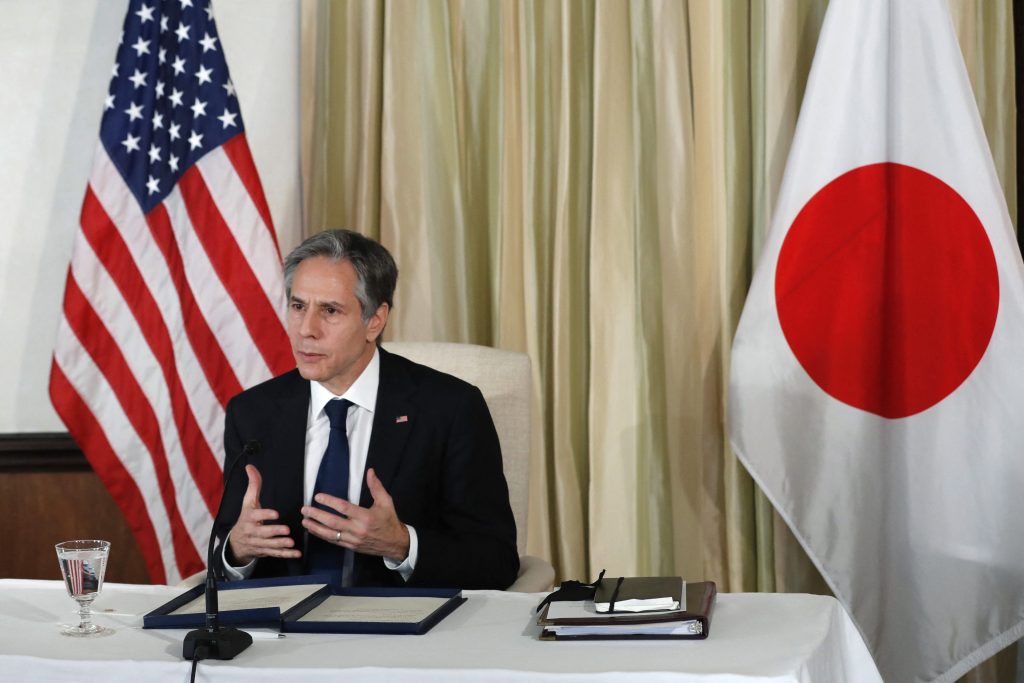
- ARAB NEWS
- 01 Jul 2025

Khaldon Azhari
TOKYO: The US-Japan Security Consultative Committee (2+2) ended on Tuesday with no big surprises as the foreign and defense ministers reaffirmed their view that the existing alliance remains the cornerstone of peace, security and prosperity in the Indo-Pacific region.
US Secretary of State Blinken, US Secretary of Defense Austin, Japan’s Minister for Foreign Affairs Toshimitsu Motegi, and Minister of Defense Kishi, however, raised the bar in their confrontational approach toward China, saying its behavior is a threat to the status quo, is inconsistent with the existing international order, and presents political, economic, military and technological challenges to the Alliance and to the international community.
In the first face-to-face 2+2 meeting during the pandemic, held in Tokyo on March 16, Japan resolved to enhance its capabilities to bolster national defense.
A joint statement said: “The United States underscored its unwavering commitment to the defense of Japan through the full range of its capabilities, including nuclear. Amid growing geopolitical competition and challenges such as COVID-19, climate change, and revitalizing democracy, the United States and Japan renewed their commitment to promoting a free and open Indo-Pacific and a rules-based international order.”
The ministers said they are committed to opposing coercion and destabilizing behavior toward others in the region “which undermines the rules-based international system.”
Another shot against China in the statement came when they reaffirmed their support for “unimpeded lawful commerce and respect for international law, including freedom of navigation and overflight and other lawful uses of the sea.”
The ministers also expressed serious concerns about recent “disruptive” developments in the region, such as the China Coast Guard law. They discussed the United States’ unwavering commitment to the defense of Japan under Article V of the security treaty, which includes the disputed Senkaku Islands.
The ministers further underscored the importance of peace and stability in the Taiwan Strait, reiterating their objections to China’s “unlawful” maritime claims and activities in the South China Sea. They also shared serious concerns regarding the human rights situation in Hong Kong and the Xinjiang Uyghur Autonomous Region.
The ministers reaffirmed their commitment to the complete denuclearization of North Korea and urged Pyongyang to abide by its obligations under UN Security Council resolutions. The Ministers also confirmed the necessity of immediate resolution of the abduction issue. Trilateral cooperation among the United States, Japan and the Republic of Korea, they said, is critical for shared security in the region.
The ministers reconfirmed the controversial plan to construct the Futenma Replacement Facility at the Camp Schwab-Henokosaki area and in adjacent waters in Okinawa is the only solution that avoids the continued use of Marine Corps Air Station Futenma, and committed to completing construction as soon as possible.